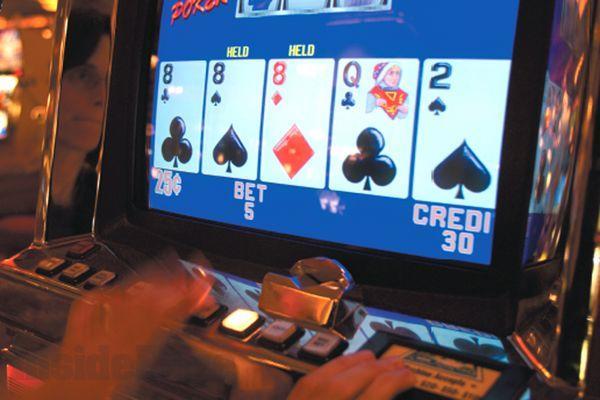A business dispute over video gambling machines has landed in the Cook County Circuit Court.
In its July 25 complaint, Gold Rush Amusements Inc., an Illinois corporation licensed to provide these machines, accuses The Underpass Restaurant & Lounge Inc. of breach of contract and one of its competitors, Triple 7 Illinois LLC, of interfering with that contract.
Asserting that it has lost revenue as a direct and proximate result of the defendants’ actions, Gold Rush seeks more than $50,000 in compensatory damages from The Underpass and more than $50,000 in compensatory and punitive damages from Triple 7.
The precise amount of damages will be proven at trial, according to the suit that also seeks costs from both of the defendants.
Gold Rush’s two-count complaint stems from a dispute in the video gambling industry, which it notes is “a relatively new business in Illinois that was first approved and legalized by the Illinois legislature in 2009 and is just now starting to go ‘live.’”
The 2009 Video Gaming Act, 230 ILCS 40, legalizes the use of video gambling machines -- or video gaming terminals (VGTs) as the law refers to them -- in certain Illinois establishments, including bars, restaurants, truck stops and other places that possess liquor licenses.
These machines require gamblers to insert money in order to play games and print out vouchers that can be redeemed right away if the gambler wins the game.
Lawmakers had a rather spirited debate over the measure as some argued that video gambling could increase crime and gambling addictions.
Supporters, however, claimed it would provide an economic boost to the cash-strapped state, as well as struggling communities and businesses, as the law gives a portion of the net profits to them.
The 2009 put the Illinois Gaming Board (IGB) in charge of regulating the new business and requires machine providers, such as Gold Rush and Triple 7, to enter into “use agreements” with establishments like The Underpass that want to have gambling machines in their place of business.
Under the act, both the providers and operators both must be licensed by the board before VGTs can be installed. Gold Rush notes that all three parties in the suit are licensed.
Gold Rush asserts that many companies started entering into exclusive location agreements during the “start-up” period of video gambling in Illinois, before the IGB had set up procedures and started licensing operators.
Without licensing procedures in place, Gold Rush contends that these early agreements provided that each party would seek to become licensed and gave terminal operators the right to assign their agreements to other companies that were or sought to be operators under the law.
“Against this industry backdrop, transactions involving the assignment of exclusive VGT placement agreements that were previously entered into by potential licensees have been commonplace occurrence within the nascent VGT industry in Illinois,” Gold Rush asserts, adding that “The right to assign these exclusive location agreements is of significant value.”
It is of particular value, the suit states, in situations where the establishments with VGTs are in a “route,” or a confined geographic location that could be serviced by the same employees.
The suit notes that some of these “routes” existed prior to the 2009 law as some terminal operators were in the vending machine or amusement business and provided non-VGT services to the same customers.
“Terminal operators will often decide to sell-off routes to other terminal operators, and the fact a route is being sold adds value to the transaction,” Gold Rush asserts. “A route therefore has greater value than the sum of its parts because additional value derives from the numbers and concentration of customers within a confined geographic location”
According to the suit, the exclusive location agreement at issue between Gold Rush and The Underpass is in such a “route.”
In November 2009, The Underpass signed an agreement with Midwest Gaming Technologies LLC (MGT), providing that MGT would be its exclusive provider of VGTs.
MGT, the suit states, ultimately sold its “route,” which included its agreement with The Underpass, to Gold Rush in June 2012.
Gold Rush asserts that The Underpass signed an agreement with Triple 7 in breach of their agreement’s exclusivity provision. It claims that The Underpass has refused to let it install its VGTs, but allowed Triple 7 to do so.
In its suit, Gold Rush claims that it sent Triple 7 a letter advising its competitor of its preexisting and exclusive contractual rights to provide VGTs to The Underpass under the terms of the agreement MGT assigned to it.
The letter included a copy of the agreement and demanded that Triple 7 stop interfering with its contractual rights under the agreement.
“Nevertheless, Triple 7 ignored the demand made in the letter,” Gold Rush asserts, later noting that it “therefore brings this lawsuit to enforce its rights contractual rights.”
Stuart M. Nagel of Chalmers & Nagel P.C. in Chicago submitted the suit on Gold Rush’s behalf.
Corporation sues over video gambling machine dispute

ORGANIZATIONS IN THIS STORY